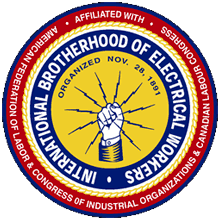
In addition to the duties outlined in your policy, insurance companies have responsibilities to injury claimants under both common law and statutory law. Generally, the insurance company owes you a duty of good faith and fair dealing when handling any transaction. It also has the obligation to faithfully investigate and honor valid insurance claims. This includes the following:
Fair Dealings: Your insurance company’s duty of good faith and fair dealing means it must act in your best interests. This includes faithfully paying any legitimate claims up to your policy’s limits. Your insurer’s responsibility also prohibits it from acting in bad faith when handling any injury claim (yours or any victims of an accident caused by your negligence). If it breaches this duty any claimant has the right to sue for damages.
Payment of Claims: Another insurance company’s legal duty is to fully investigate any claim, not just the parts that support its best interests. Insurers must also provide any claimant with all necessary information so in order to protect a claim. An insurer must also respond to any claimant’s communications and promptly pay any valid claim.
But the Insurance Business Model often Eclipses an Insurer’s Duty
Even though all insurance companies are bound by the above principles of ethical behavior, the fact remains that their business model relies on them taking in billions in premiums every year but still make substandard offers to injured victims of their policyholders’ negligent behavior. These offers rarely – if ever – compensate victims fully for the medical bills they pay, the property destroyed in an accident, disability expenses, or the victims’ true pain and suffering.
But over time, a deeper issue has grown that not only works against injured victims, but the interests of their policyholders when there’s a claim against their customers.
They do this by paying the injured person as little as possible. And if they are unsuccessful, all they must do is pay the injured victim only up to the limits of the policyholder’s coverage limits. The result is of the this: by not paying the full amount of coverage actually incites unnecessary lawsuits which could have been avoided. We’ll use a normal auto accident claim to illustrate this point.
Although this is a simplified explanation, let’s say the total amount of your demand is $100,000. But the best offer by the insurer is only $75,000. That’s not enough and you have no option but to sue in court. The jury rules against the insurance company – and the defendant, whose coverage limit is $100,000 – for $150,000: PLUS punitive damages of another $100,000. The jury is angered because the insurer negotiated in bad faith. So the insurer is forced to pay another $25,000 – the limits of the defendant’s coverage. But that’s all. The defendant’s forced to come up with the difference; in this case $150.000.
It is always the policyholder who gets stuck with the difference in a civil trial because the insurance company didn’t pay the fair amount (in this case $100.000) to settle. So the policyholder is now responsible for the remainder/excess. This happens a lot.
The conflict is the excess judgment to the policyholder because the insurance company didn’t settle within the policy limits. The insurer has put profits ahead of the fact that not negotiating in good faith is unnecessarily risking their customer’s assets. Because it didn’t come up with the additional $25,000, it has caused the customer to pay all the punitive damages ($150,000).
In their quest for profits over its duty to provide reasonable service to its policyholders (and victims), insurance companies show that the financial interests of its policyholders, or the victim, take a back seat to their business. Because in this case, had it paid all of what the victim was asking, a trial would not have been necessary.
Whether you or a family member was injured due to a car accident, commercial vehicle accident, or semi-truck accident, you may be entitled to full benefits and compensation. Know your rights and get the answers you deserve. The attorneys at Kalra Law Firm are dedicated to getting car accident victims the compensation they deserve. Call our office now to speak with one of our experienced car accident lawyers to represent you in your case. We offer a free initial consultation and will not charge unless we win your case. Call our New York City and Queens car accident lawyers today if you have any questions about a car accident you were involved in. Call us at (718) 897-2211 www.unionlawyer.com



